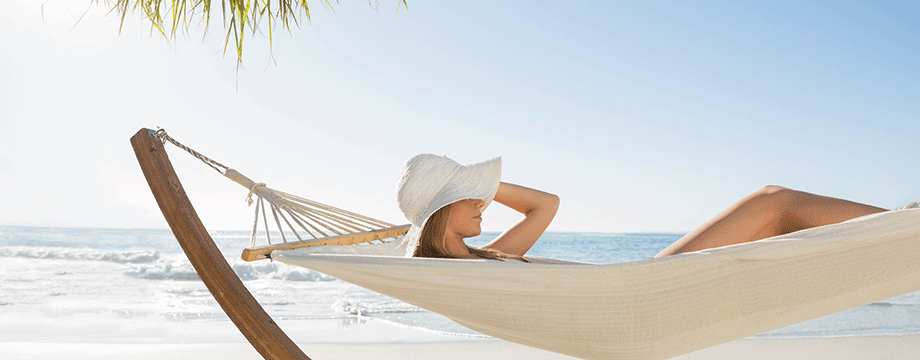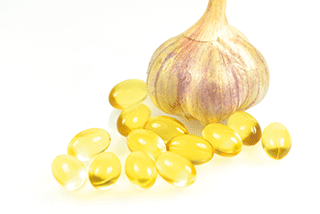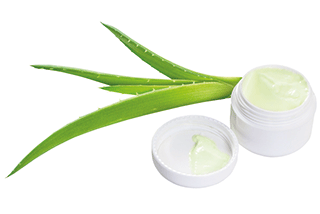Your healthy holiday checklist

Make sure you avoid any holiday health hazards with our expert tips
You’ve booked your hotel and your flight, packed your suitcase and are looking forward to some sun, sea and relaxation. But have you packed everything you need for a healthy holiday? Health hazards such as sunburn, insect bites and travellers’ diarrhoea can really spoil a holiday, so make sure you are well equipped and well prepared. Thanks to our natural health experts, we’ve come up with a checklist of everything you need to pack to enjoy a happy, healthy, stress-free holiday.
Jetlag
Eye mask – Lavender oil
“On longer flights try using an eye mask on the plane as the darkness will support melatonin production, since light can destroy it,” says Tara Jackson, a holistic health and wellness coach (www.tarajackson.co.uk). “Also a couple of drops of lavender oil on your pillow or even dabbed on your temples will help you feel calm and aid with sleeping on your flight. Taking vitamin B complex can help with energy and jet lag recovery and vitamin C will help keep your immune system strong so you are less likely to feel run down. Lastly, keep hydrated and avoid alcohol, sugary drinks and caffeine on the flight and for the first day or two of your trip.”
Travel sickness
Ginger – Peppermint – Liquorice
“One great remedy for travel sickness is ginger,” says Rick Hay, anti-ageing food and fitness nutritionist (www.rickhay.co.uk). “You can have it as a tea – I recommend making up a lemon, ginger and honey mix. Add warm water, not boiling, and drink before travel or sip during if possible. Another option is to take ginger in a capsule form – it’s a digestive and nervous system calmer which is why it works so well. Other calming choices are peppermint and spearmint – again you could drink a herbal tea before travel or make up a drink to take with you that you can sip. Both peppermint and spearmint are also calming on the gut. Liquorice and fennel are other herbal remedies that are worth a shot - again use a tea. Liquorice can help to calm the adrenals which is useful to help with the worry often associated with motion sickness - magnesium works in a similar fashion. Lastly, fennel has a long history of claiming digestion and reducing a gassy bloaty tummy.”
Traveller’s diarrhoea
Probiotics – Bottled water
“When travelling abroad on holiday, we are likely to ingest new strains of bacteria,” says Claire Barnes, a technical advisor at Probiotics International Ltd (www.protexin.com). “The first time our immune system encounters a new potentially pathogenic bacteria (PPB), it will react quickly to eradicate it from the body, usually resulting in diarrhoea. Taking live bacteria (probiotics) for at least a couple of weeks before going away can help to balance the microflora in the gut and support the immune system. By increasing the numbers of beneficial bacteria in the gut, PPBs are more likely to be inhibited from attaching to the digestive tract. Drinking lots of bottled water whilst away will also help to flush any PPB strains through, with the hope that they will not interact with the immune system and cause diarrhoea. We recommend taking a multi-strain live bacteria formula two weeks before, during and two weeks after your holiday.”

Insects and mites
Loose clothing – Citronella oil – Garlic capsules
“Try to avoid getting bitten in the first place by wearing light-coloured, loose-fitting clothing such as long-sleeved shirts, trousers and shoes,” says Tara Jackson. “Also sit in areas where there is a breeze as they will generally have less insects. Certain oils can help to repel insects including: citronella (plus washing with citronella soap or burning a citronella candle safely), eucalyptus, tea tree, lemon, lemongrass and lavender oils. Use a couple of drops of one of these on your neck, wrists and ankles. Also, adding a few drops to your bed sheets will help to repel insects and mites while you sleep. Taking garlic capsules or generally increasing the amount of garlic you are eating can also help to repel insects (but may also repel humans too!) To treat bites, a cucumber or a cooled tea bag on the bite will help to reduce swelling. Tea tree oil put directly on the bite will help it to heal quicker. Also, aloe vera, lavender oil and crushed fresh peppermint leaves or essential oil will help to soothe itchiness.”
Sun burn
Long-sleeved shirt – Hat – Sunglasses – Natural sunscreen – Aloe vera gel
“Stay out of the sun during the hottest part of the day, which is between 11 and 3 pm,” advises nutritionist Cassandra Barns. “This is especially relevant if you’re holidaying in a hot environment, even more crucial if you’re not used to it. It’s better to have short bursts of sun exposure, for example in 10 minute slots, rather than longer periods. And you should also work up your sun exposure time gradually to avoid burning. Slip on a shirt – a long-sleeved cotton one is best – especially during the hottest part of the day. Don’t forget to wear a hat. Ideally make it a wide-brimmed hat to help protect your face, ears, neck and hair. Help protect your eyes from the damage of the sun by wearing sunglasses. Your sunglasses should block out 99 to 100 per cent of the sun’s UV rays, so check the label to ensure this. Wear a ‘natural’ sunscreen that is mineral and/or zinc-based and make sure you reapply it every two to three hours, or after swimming or excessive sweating. Aloe vera gel is a must-have for sun holidays, to soothe and calm any sunburn. Due to its high vitamin content (A, B1, B2, B6, B12), aloe vera can rejuvenate and reach deep into the skin helping to heal micro-wounds, including sunburn and acne scars. Apply often, especially in the evening after the day in the sun.”
DVT (deep vein thrombosis)
Pycnogenol – Compression stockings
DVT is the formation of blood clots within the blood vessels, often in the large, deep veins in the lower legs. It can block the flow of blood and cause tissue damage and if a clot breaks away, reaching the lungs, it can be fatal. Aspirin is often recommended as an option for ‘thinning’ the blood and reducing the risk of DVT. However, studies show that Pycnogenol® could be a natural alternative. This is a natural plant extract originating from the bark of the Maritime pine which has been found to contain a combination of procyanidins, bioflavonoids and organic acids. Research from the University of Arizona Medical School showed that while both aspirin and Pycnogenol significantly reduced platelet aggregation (the condition which occurs when the smallest blood cells stick together and form clots in the blood) a much smaller dose of Pycnogenol was as effective as a dose of aspirin five times higher with no risk of increased bleeding. Other tips for reducing your risk of DVT include drinking plenty of water, wearing compression stockings and taking regular, short walking breaks.

Prickly heat
Breathable clothing – Aloe vera gel – Manuka honey
“Prevention of prickly heat includes avoiding sweating as much as possible,” says Tara Jackson. “A dip in the pool or a cool shower can help to stop sweating, plus avoiding sticky sun creams as they can trap sweat. Avoid friction and rubbing from clothes, wear breathable clothing such as light cotton. Also try to avoid any irritation of the skin from excessive soap, creams and perfumes. Other suggestions include avoiding going into direct sunlight and if you are outside sit in the shade with a small fan. Drink plenty of fluids to avoid dehydration but avoid alcohol and caffeine. Apply aloe vera gel to prickly heat for relief from itching as well as a cooling effect. Manuka honey can help speed up the healing process when applied to the affected area. Eating cucumbers will help to cool you down from the inside while taking a bath in cool water also helps to relieve itching.”
Dehydration
Coconut water
“We lose electrolytes through sweating, exercise and heat so it is very important to replace them so as to avoid dehydration and electrolyte imbalances,” says Cassandra Barns. “Electrolytes such as potassium, magnesium, sodium, calcium, phosphate and chlorine are absolutely essential for many heart, nerve and muscle functions. They also help our body to retain water, reducing dehydration. Coconut water is naturally high in electrolytes (minerals) and it’s a perfect refreshing drink on hot days. You can also go for electrolyte mineral supplements, as another easy way to ensure your electrolytes are maintained. Some come in handy travel-size bottles too, making it easy to top up a bottle of water with a dose of electrolytes.”
Don’t forget this!
“Arnica gel should travel with you whether you are heading up mountains and down gorges or lying by the pool,” says Alison Cullen, nutritional therapist with A.Vogel (www.avogel.co.uk). “If muscles are aching or legs are bruised, arnica gel will reduce the discomfort fast. If insects are biting then it can counter the swelling and unpleasantness. Suitable to use on children too, it’s an all-rounder for any family holiday.”
Read previous Your Experts articles here...
Read articles from our latest issue here...